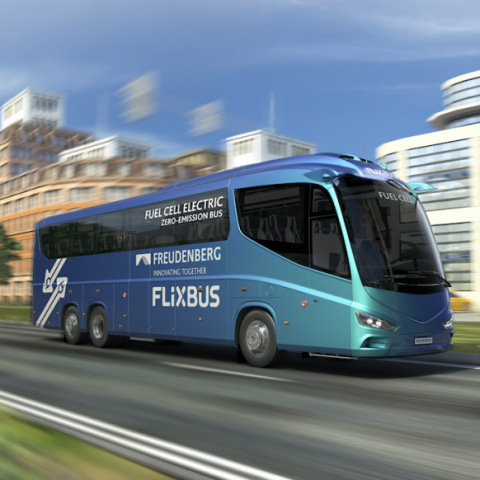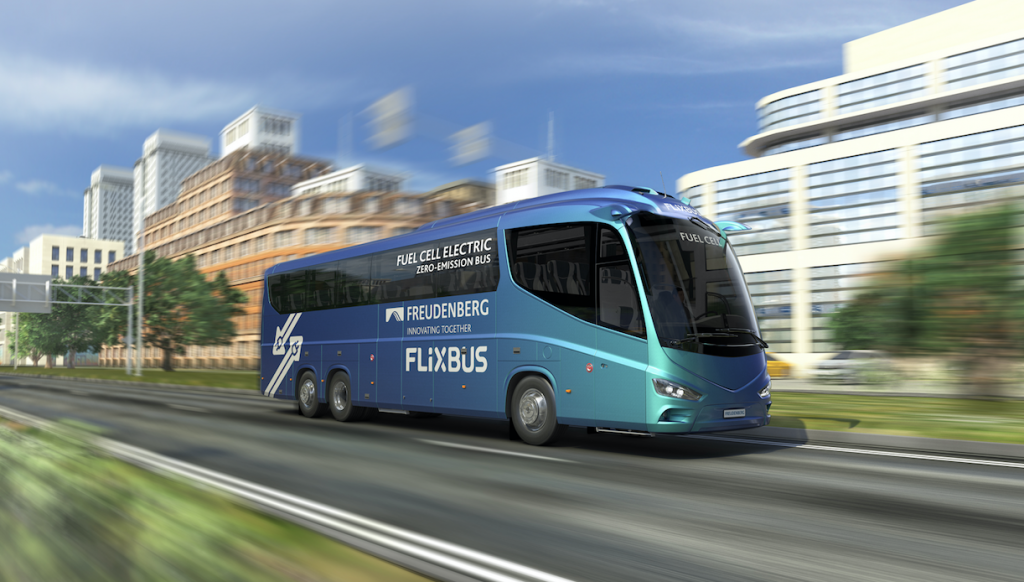EU CoacHyfied project launched: towards the development of fuel cell coaches
The EU project CoacHyfied has been launched. It is led by service provider FEV Group and aims to identify existing challenges and elaborate suitable solutions by developing and operating six fuel cell coaches in public and commercial transport, both local and long-distance. A consortium of 14 companies from the fields of development, technology and science […]

The EU project CoacHyfied has been launched. It is led by service provider FEV Group and aims to identify existing challenges and elaborate suitable solutions by developing and operating six fuel cell coaches in public and commercial transport, both local and long-distance.
A consortium of 14 companies from the fields of development, technology and science is part of the project. The demonstration phase under real operating conditions of the buses started at the beginning of the year and will last up to three years. The total project duration is scheduled for five years.
Among the partners there are Ballard Power Systems, ElringKlinger, Otokar, Engie, the Turkish Ford subsidiary Ford Otomotiv Sanayi A.Ş.

CoacHyfied project: paving the way for the fuel cell coach of the future
Fuel cell technology is playing to its full potential with regard to long-distance transportation due to its comparatively low system weight. This is particularly advantageous for heavy-duty applications with high power requirements since the fuel cells’ long range potential is combined with short refueling times. It’s no secret that main truck and bus builders are targeting to implement hydrogen on their strategy for long-haul vehicles: let’s just mention Daimler and the joint-venture with Volvo Group, nonetheless Iveco partnership with Nikola for the truck operations. Flixbus launched a dedicated project. The new player Hyzon Motors (which is to go public) also targets hydrogen operations for long-distance.
However, there are no known activities for the development of FC coaches in Europe so far.
CoacHyfied project for fuel cell on long-distance
In the course of CoacHyfied project, two types of coaches will be investigated: OEM-based, newly produced fuel cell buses, and existing buses that have been converted to fuel cell propulsion. Thus, the consortium will be able to provide answers for a second use of technically still sound chassis through retrofit (“second-life use”). “In this way, existing vehicle fleets can continue to be used in a climate-neutral way that conserves resources,” said Prof. Pischinger.
In addition, design options for the use of the tank technology of 350 or 700 bar are being investigated in order to be able to present the scalability of the performance and range requirement in an economically efficient manner. The use of “green hydrogen” during the project will also provide valuable insights regarding logistics for energy suppliers and future operators of the fuel cell buses.
“The close interconnection of the European internal market and steadily growing traffic require a common strategy to achieve our ambitious climate targets – especially in the transport sector,” said Prof. Stefan Pischinger, President and CEO of FEV Group. “For the long-distance transport of people and goods, fuel cell drives are a suitable technological alternative, which we are specifically addressing with ‘CoacHyfied’.”
CoacHyfied, Otokar the bus builder partner
Here the full list of partners: FEV Europe GmbH (consortium leader), Ballard Power Systems Europe A/S, Coventry University, ElringKlinger Fuelcell Systems Austria GmbH, I SEE Electric Busses GmbH, Ford Otomotiv Sanayi A.Ş. , Otokar A.Ş., RWTH Aachen University, Engie Energie Serives, HyPORT, KIWA Nederland BV, Dobeles Autobus parks, NPROXX B.V, Trezors.








